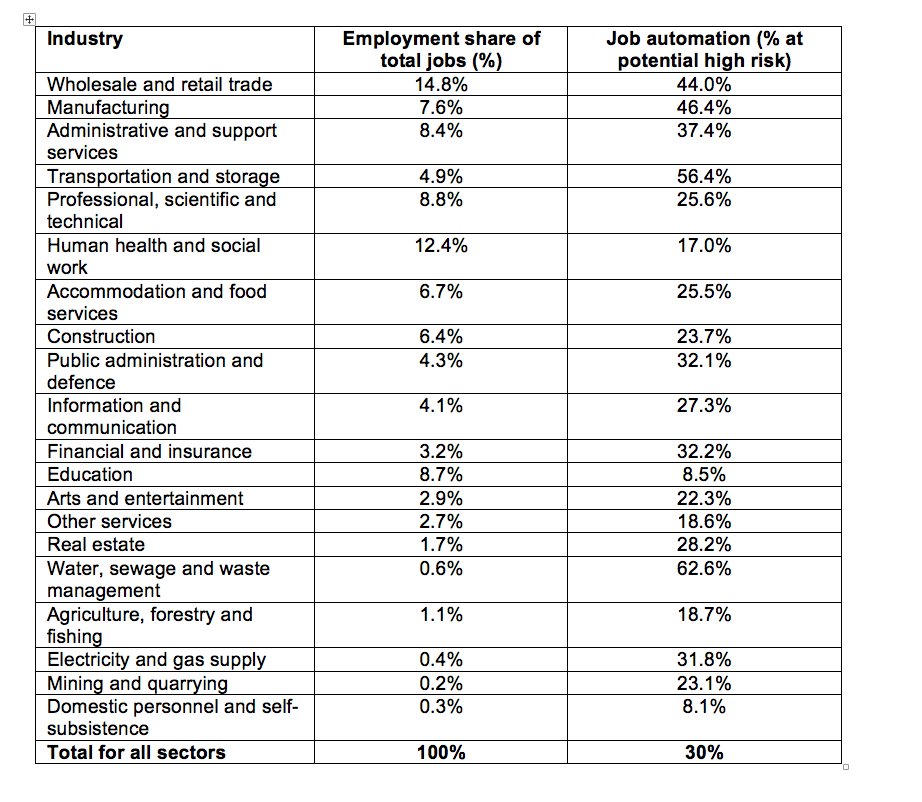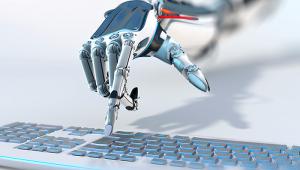Public administration and defence could experience job losses of 32.1% over the next 15 years, said research released by the accountancy firm on Friday.
Office for National Statistics data shows there were 1.466m jobs in public administration and defence by December last year.
But PwC's UK Economic Outlook report said while education, health and social work could lose jobs they will fare better.
Human health and social work faces a 17% reduction while education may suffer a 8.5% loss by the early 2030s - ONS statistics show there were 4.312m and 3.011m jobs in those sectors in December last year, respectively.
The research - based Organisation for Economic Co-operation and Development's UK data - looked at a range of industries and what impact artificial intelligence and robotics could have on these occupations. [See full table at the bottom].
Automation is where automatic equipment is used for a process, which usually results in the loss of a job.
The sectors likely to be worst hit include transportation and storage (56%), manufacturing (46%) and wholesale and retail trade (44%).
John Hawksworth, chief economist at PwC, said: “A key driver of our industry-level estimates is the fact that manual and routine tasks are more susceptible to automation, while social skills are relatively less automatable.
"That said, no industry is entirely immune from future advances in robotics and artificial intelligence."
He added: "By boosting productivity - a key UK weakness over the past decade - and so generating wealth, advances in robotics and artificial intelligence should also create additional jobs in less automatable parts of the economy as this extra wealth is spent or invested.”
Public Finance explored the robot revolution and how it will affect the public sector in January. Although, 16% of public sector workers could be affected by automation by 2030 there could be "a great opportunity to improve the humanisation of public services".
In many roles, technology will not replace the whole job but replace some tasks and free up time for people to focus on and be better at the elements of their jobs that machines cannot do, Radhika Chadwick, lead partner for digital government at consultancy EY told Public Finance. 











